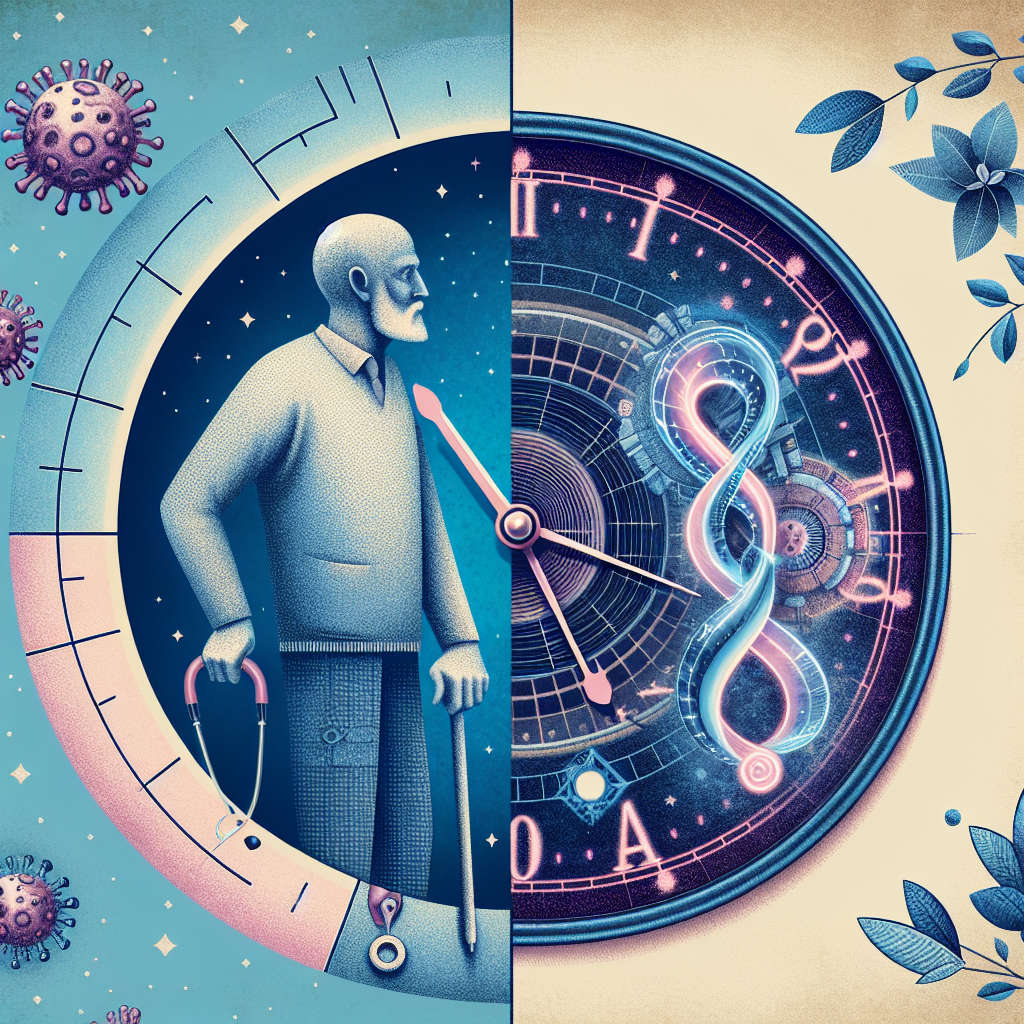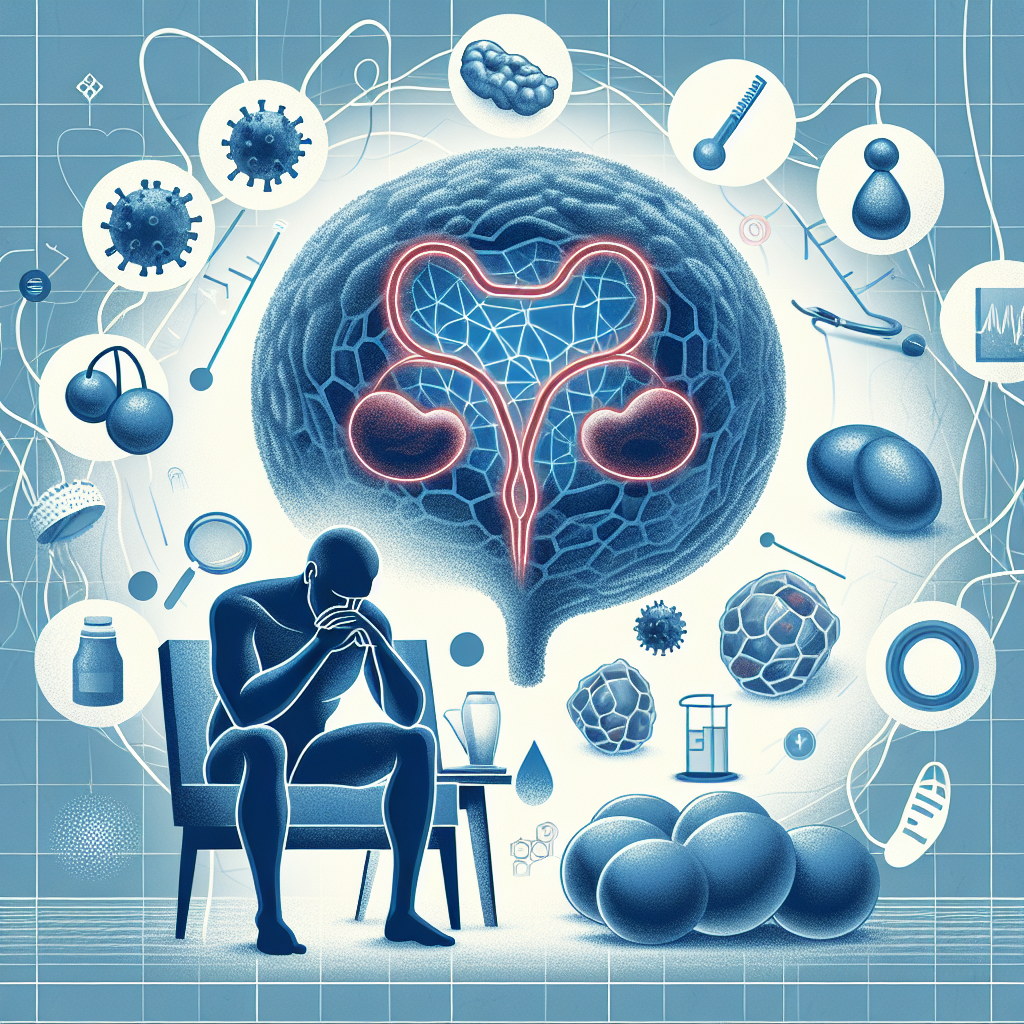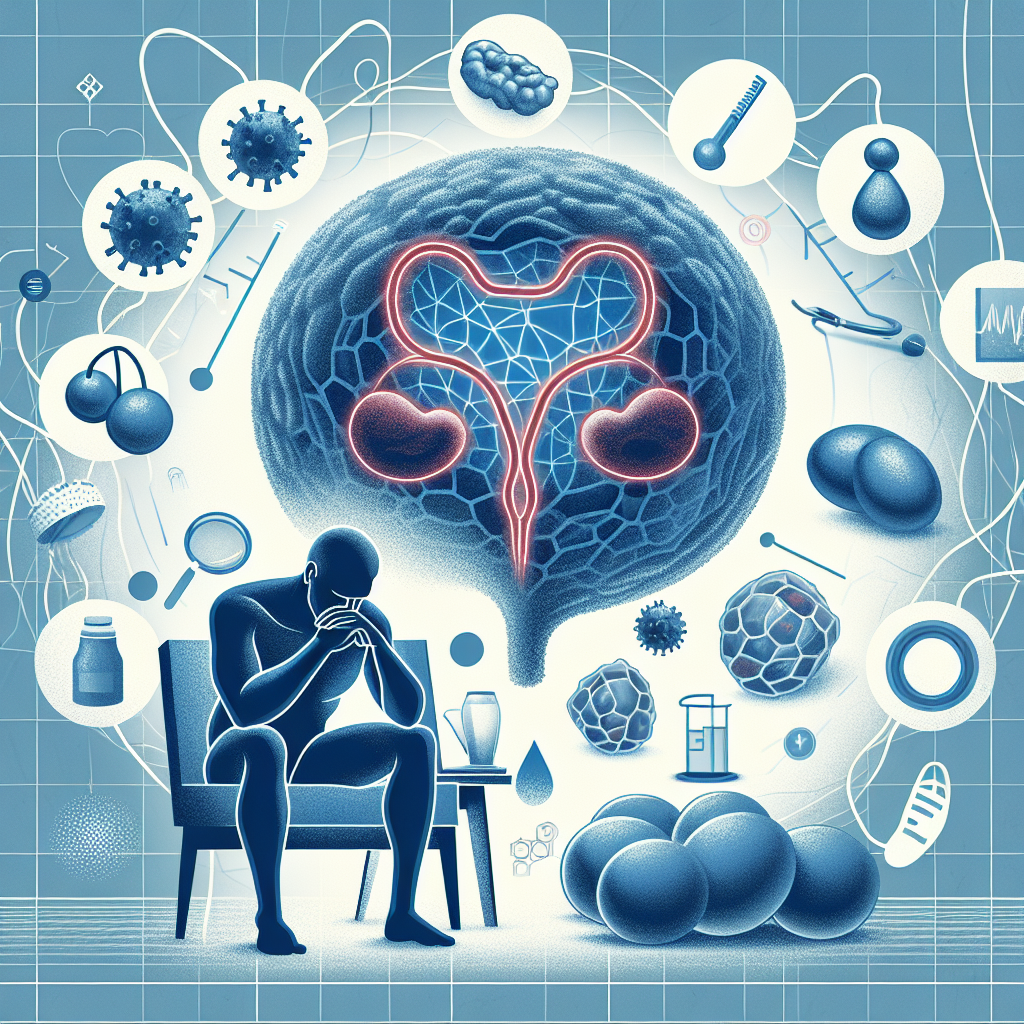If you or a loved one is battling prostate cancer, you may have noticed a profound fatigue taking hold of your daily life. This article explores the potential link between prostate cancer and exhaustion, discussing the effects of the disease on the body’s energy levels. By understanding how prostate cancer can impact your energy and learning effective strategies to manage fatigue, you can enhance your quality of life throughout your treatment journey. So, if you’ve ever wondered, “Does prostate cancer make you tired?” – read on to gain valuable insights and practical advice.
Overview of Prostate Cancer
What is prostate cancer?
Prostate cancer is a malignant tumor that develops in the prostate, a small gland located in a man’s reproductive system. It occurs when abnormal cells in the prostate gland begin to grow and multiply uncontrollably, forming a tumor. Prostate cancer is one of the most common types of cancer in men.
Prevalence of prostate cancer
Prostate cancer is a significant health concern, especially for aging males. It is estimated that approximately 1 in 8 men will be diagnosed with prostate cancer during their lifetime. In fact, it is the second most common cancer among men worldwide. The risk of developing prostate cancer tends to increase with age, with the majority of cases being diagnosed in men over the age of 65.
Causes and risk factors
The exact cause of prostate cancer is still unknown, but certain risk factors have been identified. These include age, family history of prostate cancer, race (African American men have a higher risk), and certain genetic mutations. Additionally, a diet high in red meat and low in fruits and vegetables, as well as obesity, may increase the risk of prostate cancer.
Symptoms of prostate cancer
In the early stages, prostate cancer often does not cause noticeable symptoms. However, as the disease progresses, symptoms may include frequent urination, difficulty starting and stopping urination, weak urine flow, blood in the urine or semen, discomfort in the pelvic area, and bone pain. It is important to note that these symptoms can also be caused by other non-cancerous conditions, so it is essential to consult a healthcare professional for an accurate diagnosis.
Understanding Cancer-Related Fatigue
Definition of cancer-related fatigue
Cancer-related fatigue is a pervasive and distressing symptom commonly experienced by cancer patients, including those with prostate cancer. It is different from the usual tiredness or fatigue experienced by healthy individuals. Cancer-related fatigue is often described as an overwhelming and persistent feeling of physical, emotional, and mental exhaustion that is not relieved by rest or sleep.
Causes of cancer-related fatigue
The exact causes of cancer-related fatigue are complex and multifactorial. It can be a result of the cancer itself, the side effects of cancer treatments, and the physiological and psychological impact of living with a chronic illness. Factors such as anemia, hormonal imbalances, pain, poor nutrition, sleep disturbances, and psychological distress can contribute to the development and persistence of cancer-related fatigue.
Prevalence and impact of cancer-related fatigue
Cancer-related fatigue is prevalent among cancer patients, with studies reporting that up to 90% of individuals undergoing cancer treatment experience fatigue. It can significantly impact a person’s quality of life and overall well-being. Fatigue can interfere with daily activities, social interactions, work productivity, and emotional well-being, leading to increased distress and reduced functioning. Understanding and managing cancer-related fatigue is therefore crucial for the well-being of individuals with prostate cancer.

Prostate Cancer Treatment and Fatigue
Effects of prostate cancer treatment on fatigue levels
Prostate cancer treatment can contribute to the development or exacerbation of fatigue in patients. The type of treatment received, such as surgery, radiation therapy, chemotherapy, hormone therapy, immunotherapy, or targeted therapy, can directly affect a patient’s energy levels and overall fatigue.
Surgery and fatigue
Surgical interventions, such as a radical prostatectomy, can lead to fatigue and decreased energy levels, especially in the immediate postoperative period. The body’s healing process and the physical strain of the surgery itself can contribute to feelings of fatigue. However, fatigue typically improves as the body heals and adjusts to the changes.
Radiation therapy and fatigue
Radiation therapy, a common treatment for prostate cancer, can cause fatigue as a side effect. The cumulative effect of radiation on healthy tissues, including the prostate gland, can lead to a decrease in energy levels. Fatigue during radiation therapy tends to vary among individuals, with some experiencing mild fatigue, while others may have more severe symptoms.
Chemotherapy and fatigue
Chemotherapy drugs used to treat advanced or metastatic prostate cancer can also lead to fatigue. The medications may affect healthy cells along with cancer cells, leading to a general feeling of tiredness and decreased stamina. The severity of fatigue associated with chemotherapy can vary depending on the specific drugs used and the individual’s overall health.
Hormone therapy and fatigue
Hormone therapy, also known as androgen deprivation therapy (ADT), is commonly used to treat prostate cancer. It works by reducing the levels of testosterone, which can slow down the growth of cancer cells. However, hormone therapy can also lead to fatigue as a side effect. The hormonal changes induced by ADT can affect energy levels and overall well-being, causing fatigue in some individuals.
Immunotherapy and fatigue
Immunotherapy, a relatively newer form of treatment for prostate cancer, can also cause fatigue in some patients. While immunotherapy works by stimulating the body’s immune system to fight cancer cells, it can lead to systemic immune activation, which may result in fatigue. It is important to note that not all individuals undergoing immunotherapy will experience fatigue, and the severity can vary.
Targeted therapy and fatigue
Targeted therapy drugs are designed to specifically target and inhibit the growth and spread of cancer cells. These medications can also cause fatigue as a side effect. The fatigue experienced during targeted therapy may be similar to cancer-related fatigue, but its severity may depend on multiple factors, including the specific drug used and the individual’s overall health.
Psychological and Emotional Factors
Impact of prostate cancer diagnosis on psychological well-being
A diagnosis of prostate cancer can significantly impact a person’s psychological well-being. It is common for individuals to experience a range of emotions, including fear, anxiety, sadness, and uncertainty. The shock of the diagnosis and concerns about treatment outcomes can contribute to psychological distress, which may in turn affect fatigue levels.
Anxiety and depression
Anxiety and depression are common psychological conditions experienced by individuals with prostate cancer. These conditions can have a significant impact on fatigue levels. Anxiety and constant worrying can disrupt sleep patterns and increase mental and emotional fatigue. Depression, on the other hand, may lead to a persistent feeling of sadness and lack of motivation, contributing to overall fatigue.
Stress and fatigue
Living with prostate cancer can be a stressful experience. Stress, whether related to the cancer diagnosis, treatment, or everyday life, can further exacerbate fatigue. Chronic stress can drain a person’s energy and lead to constant feelings of exhaustion. Learning effective stress management techniques can play a crucial role in mitigating fatigue levels and improving overall well-being.
Coping strategies
Coping with the psychological and emotional impact of prostate cancer can help manage fatigue. Engaging in activities that promote relaxation and reduce stress, such as meditation, deep breathing exercises, and mindfulness, can be beneficial. Seeking support from loved ones, joining support groups, and considering counseling services can also provide a valuable outlet for emotional expression and support.

Physical Factors
Hormonal changes and fatigue
Hormonal changes resulting from prostate cancer and its treatment can contribute to fatigue. Hormone therapy, in particular, can cause hormonal fluctuations and imbalances that may affect energy levels. It is important for individuals undergoing hormone therapy to discuss any fatigue symptoms with their healthcare providers, as adjustments in treatment or other interventions may help alleviate fatigue.
Pain and fatigue
Pain is another physical factor that can contribute to fatigue in individuals with prostate cancer. Chronic pain, whether from the cancer itself or as a side effect of treatment, can disrupt sleep patterns and decrease overall energy levels. Effective pain management strategies, such as medication, physical therapy, or alternative therapies, may help reduce pain-related fatigue.
Sleep disturbances and fatigue
Sleep disturbances are common among individuals with prostate cancer and can contribute to fatigue. Pain, treatment side effects, anxiety, and other factors can disrupt sleep patterns, leading to insufficient or poor-quality sleep. Sleep hygiene practices, such as maintaining a consistent sleep schedule, creating a comfortable sleep environment, and avoiding stimulants before bedtime, can help improve sleep quality and reduce fatigue.
Nutrition and fatigue
Nutrition plays a crucial role in managing fatigue. Poor nutrition, inadequate calorie intake, and nutrient deficiencies can contribute to fatigue. It is important for individuals with prostate cancer to maintain a well-balanced diet, rich in fruits, vegetables, whole grains, lean proteins, and healthy fats. Consulting with a registered dietitian can help develop a personalized nutrition plan that addresses specific nutritional needs and enhances overall energy levels.
Exercise and fatigue
Regular exercise and physical activity can have numerous benefits for individuals with prostate cancer, including reducing fatigue. Engaging in moderate-intensity aerobic exercise, strength training, and flexibility exercises can help improve energy levels, enhance overall fitness, and reduce fatigue. Prior to starting an exercise program, it is important for individuals to consult with their healthcare provider and consider any physical limitations or precautions.
Medication side effects and fatigue
Certain medications used in the treatment of prostate cancer can have side effects that contribute to fatigue. It is important to discuss any medication-related fatigue with healthcare providers, as adjustments in dosages or switching to alternative medications may be necessary. Open communication with healthcare professionals can help manage medication side effects effectively.
Management and Coping Strategies
Medical interventions for fatigue management
Managing fatigue in individuals with prostate cancer often requires a multidimensional approach. Medical interventions may include addressing underlying causes of fatigue, such as anemia or hormonal imbalances, through appropriate treatments. Additionally, healthcare providers may prescribe specific medications or supplements to alleviate fatigue and improve overall energy levels.
Pharmacological approaches
Pharmacological approaches to fatigue management may include the use of stimulant medications, such as modafinil or methylphenidate, to help improve alertness and combat excessive daytime sleepiness. However, medication options should be carefully considered, taking into account individual patient characteristics, potential side effects, and interactions with other medications.
Psychological interventions
Psychological interventions can play a significant role in managing fatigue. Techniques such as cognitive-behavioral therapy (CBT) can help individuals identify and modify thoughts and behaviors that contribute to fatigue. CBT can also address anxiety and depression, which may be contributing factors to fatigue. Other psychological interventions, such as relaxation training or stress management techniques, can also be beneficial.
Supportive care and symptom management
Supportive care interventions can help individuals manage fatigue and its impact on daily life. These may include providing education and resources on fatigue management, offering guidance on lifestyle modifications, and implementing strategies to enhance quality of life. Supportive care teams may also address other symptoms or side effects of prostate cancer treatment that contribute to fatigue.
Lifestyle Modifications
Dietary changes for managing fatigue
Making appropriate dietary changes can help manage fatigue in individuals with prostate cancer. It is important to consume a well-balanced diet that includes a variety of nutrients, vitamins, and minerals. Foods rich in iron, such as lean meats, beans, and leafy green vegetables, can help combat fatigue associated with anemia. Additionally, staying hydrated by drinking enough fluids throughout the day is essential for maintaining energy levels.
Importance of hydration
Staying hydrated is crucial for managing fatigue. Dehydration can contribute to feelings of tiredness and decreased energy levels. It is recommended to drink an adequate amount of fluids, such as water or herbal teas, throughout the day. Limiting caffeine and alcohol intake is also important, as they can contribute to dehydration and disrupt sleep patterns, further exacerbating fatigue.
Exercise and physical activity recommendations
Regular exercise and physical activity can help combat fatigue. Engaging in exercises appropriate for an individual’s fitness level, such as walking, swimming, or cycling, can improve cardiovascular fitness and boost energy levels. It is important to start slowly, gradually increase intensity and duration, and listen to the body’s signals. Consulting with a healthcare provider or a qualified exercise professional can provide guidance and support.
Sleep hygiene and relaxation techniques
Establishing good sleep hygiene practices can help improve sleep quality and reduce fatigue. This includes maintaining a regular sleep schedule, creating a comfortable sleep environment, practicing relaxation techniques, and avoiding stimulating activities before bedtime. Relaxation techniques, such as deep breathing exercises, guided imagery, or progressive muscle relaxation, can promote a sense of calm and aid in falling asleep more easily.
Seeking Support
Doctor-patient communication and support
Building a strong doctor-patient relationship based on open communication is vital for managing prostate cancer-related fatigue. It is important to discuss any concerns or symptoms of fatigue with healthcare providers, as they can offer guidance, provide appropriate interventions, or refer individuals to other healthcare professionals as needed. Regular check-ups and follow-up appointments are essential for monitoring fatigue levels and adjusting treatment plans accordingly.
Support groups and counseling services
Joining support groups or seeking counseling services can be incredibly helpful for individuals with prostate cancer experiencing fatigue. Support groups provide a safe space to share experiences, emotions, and coping strategies with others who understand the challenges of living with prostate cancer. Counseling services, whether individual or group therapy, can offer additional emotional support and guidance in managing fatigue-related distress.
Building a support network
Building a support network of family and friends can provide significant emotional and practical support for individuals dealing with prostate cancer-related fatigue. Loved ones can offer a listening ear, help with daily tasks, provide transportation to medical appointments, or simply be there to offer companionship. Having a strong support network can alleviate feelings of isolation and contribute to overall well-being.
Addressing Work and Lifestyle Changes
Impact of fatigue on work
Fatigue related to prostate cancer and its treatment can impact a person’s ability to work and carry out daily activities effectively. Fatigue may result in decreased productivity, difficulty concentrating, and reduced stamina. Understanding the impact of fatigue on work is essential for making informed decisions regarding work-related adjustments and seeking appropriate accommodations if necessary.
Managing work-related fatigue
Managing work-related fatigue involves finding a balance that supports both the individual’s health and job responsibilities. It may include advocating for flexible work schedules, adjusting workload or job duties, taking regular breaks, and implementing fatigue management strategies during working hours. Open communication with employers and colleagues can help create a supportive work environment.
Adjusting daily routines and activities
Adjusting daily routines and activities can help individuals manage fatigue associated with prostate cancer. This may involve prioritizing activities, delegating tasks, and incorporating rest periods or naps throughout the day. Identifying and eliminating unnecessary stressors or energy-draining activities can also help conserve energy and reduce fatigue. It is important to listen to the body’s signals and make adjustments accordingly.
Conclusion
Prostate cancer, a prevalent form of cancer affecting men, can have a significant impact on a person’s physical, psychological, and emotional well-being. Fatigue, a common symptom experienced by individuals with prostate cancer, can greatly affect quality of life and daily functioning. Understanding the causes and contributing factors to prostate cancer-related fatigue is essential in developing effective management strategies. By addressing physical factors, psychological and emotional factors, and making lifestyle modifications, individuals can find relief from fatigue and improve their overall well-being. Seeking support from healthcare professionals, support networks, and utilizing appropriate interventions can play a key role in managing prostate cancer-related fatigue and enhancing overall quality of life.

